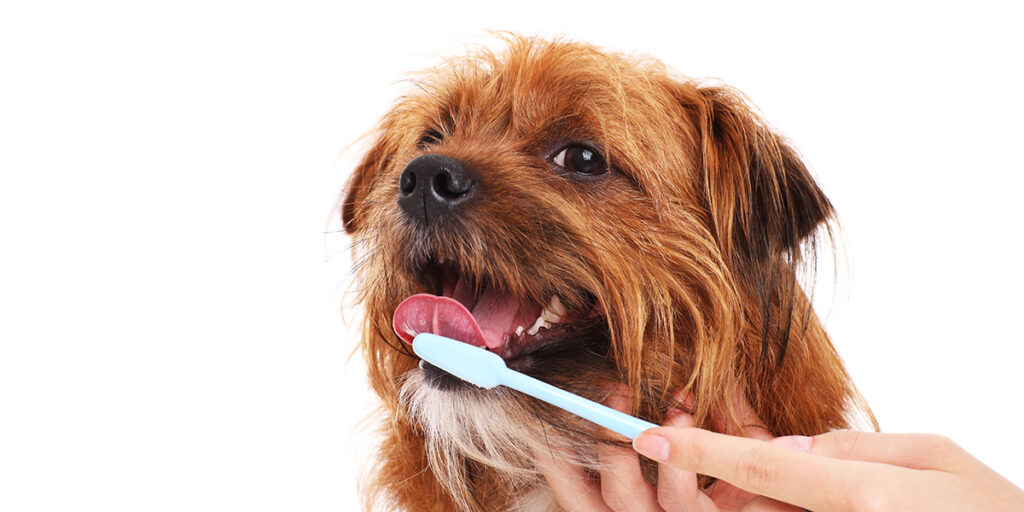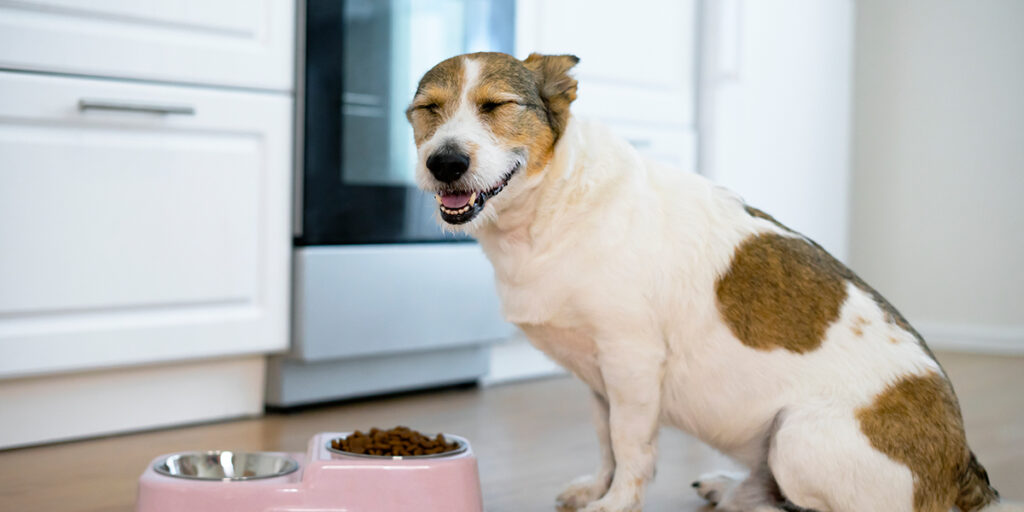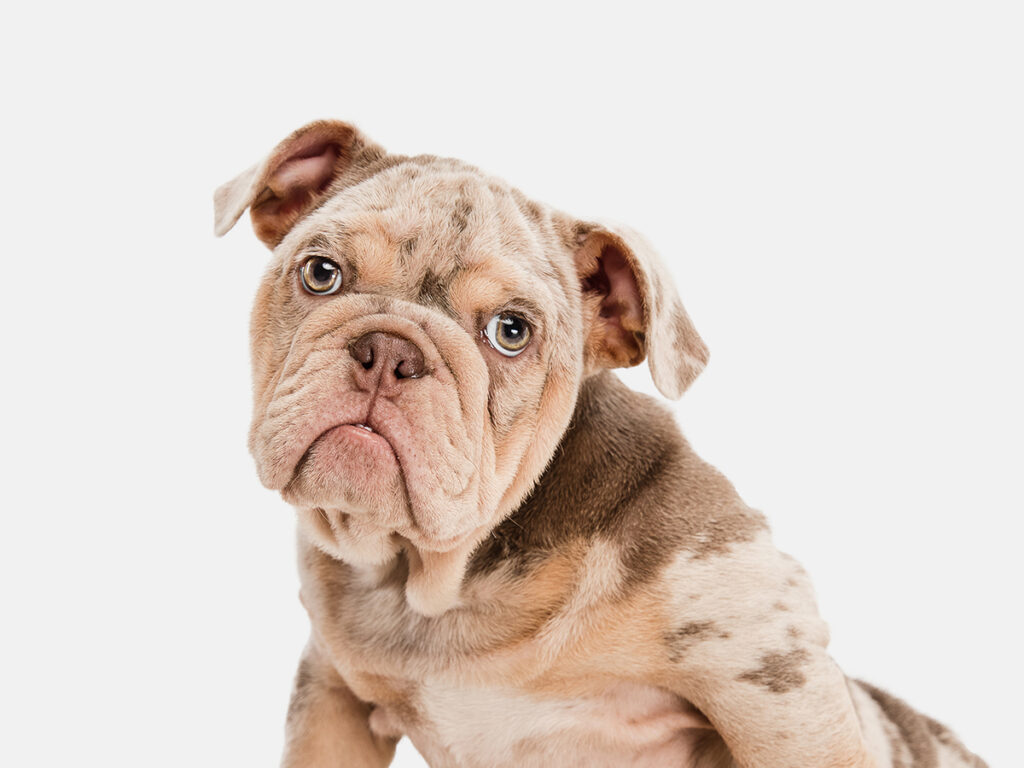We all like to spend a lot of time playing with our dog. However, suddenly we felt an unpleasant smell coming from the mouth of our puppy, and an unpleasant fragrance interrupted the fun.
You must have wondered what is the cause of bad puppy breath?
The smell coming from the dog’s mouth often indicates a strange condition in the dog’s body.
This article will help you find out the common reasons for this and what you need to do to change the situation.
Let’s uncover the truth!
Table of Contents
#1 – Puppy Teething
Yes, you heard it right. Cute little puppies from 3 weeks of age are starting to get their permanent teeth. When the puppy discovers the environment, they will find various things that seem pleasant to chew. However, when chewing, their teeth will fall out, and a slight infection may occur.
During this period, restrict the puppy’s movement in areas where they will not encounter potential problems.
Also, the appearance of small blood in the mouth can cause unpleasant smells. But, don’t worry; this is a regular occurrence, and it will last until the puppy completely loses small teeth.
This process takes up to 7 months of life at the latest.
It is then considered that the puppy has all the teeth and that the small teeth have been completely replaced.
What should you do?
During the permanent tooth development process, surround your puppy with a variety of dental toys. Dental toys will promote better tooth development and gum health.
In addition, dental toys will boost the secretion of saliva. Saliva has an antibacterial effect. On the other hand, you will prevent the entry of foreign objects that can injure the dog.
Be sure to avoid offering the puppy dental sticks or strong bones since this could harm your puppy’s teeth.
#2 – Impaired Oral Hygiene
Due to their curious nature, your puppy gets to know the environment by sniffing around. Unfortunately, all these objects that are within their reach can cause consequences to their health.
In the beginning, try to expand the puppy’s playable areas gradually. Puppy mouth isn’t a caries target. However, you should often check the condition of your dog’s teeth and gums.
It is not a common case, but the initial expansion of bacteria can begin during the final phase of tooth development.
Initially, they form plaque. After that, tartar forms, and your puppy’s chances of tooth decay increase. During this stage, you’ll notice an unpleasant smell.
Further tooth decay can compromise the functioning of vital organs. So make sure to introduce the necessary habit in time.
What should you do?
Get your puppy used to teeth brushing. During initial dog tooth development, there is a slight chance that the puppy will be interested in brushing his teeth. However, by giving your puppy’s favorite treat, you can improve this situation.
Be sure to check the color of puppy gums before each toothbrushing. Make sure that your puppy doesn’t have blood in its gums before and after brushing. The pink color is a sign of healthy gums.
Also, it’s important to contact your vet to help you choose the right toothpaste for your dog. Finally, make sure to check out our Top 5 Homemade Dog Toothpaste Recipes blog post and find some fun ideas to try.


#3 – Kidney Disease
It sometimes happens that puppies have an unpleasant odor that resembles a urine smell. The reason why this happens is impaired kidney function.
The kidneys play a role in expelling toxins from the body. However, when their abnormal functioning occurs, a problem arises.
By preventing the release of toxins, they cause them to accumulate constantly. In the meantime, the dog has a frequent need for water.
These toxins reach the mouth through the bloodstream. That is why the puppy could have a bad breath. The unpleasant odor is reminiscent of a metallic character. Often, kidney problems are associated with a lack of oral hygiene.
What should you do?
If you notice a strange smell from a puppy’s mouth that resembles urine, contact your veterinarian for an examination. Also, if you notice a lack of appetite and a drastic weight loss, it is most likely an incorrect kidney function.
A veterinarian will use a urine test to detect creatinine levels. Creatinine levels will help the veterinarian to determine the course of treatment further.
#4 – Respiratory Problems
The puppy comes into contact with various bacteria during breathing. Respiratory infections are one of the most contagious diseases. They can cause a variety of symptoms, from fever to constant coughing.
On that occasion, if the airways are blocked, pus is created in the nasal cavity.
Puppies may be prone to respiratory problems if the environment is neglected. For example, coughing can often occur even if the air is filled with dust particles.
The connection between the nose and throat leads to the retention of pus in these parts. Pus is a disgusting combination of bacteria and blood cells. Its presence also causes an unpleasant odor that can drive you crazy.
What should you do?
A typical recovery takes from 1 to 3 weeks. The most proven way to treat a cough is to take antibiotics. However, consult a veterinarian beforehand.
When it comes to prevention, you can apply the following steps:
- To begin with, clean the environment where the puppy resides.
- Thoroughly wipe each corner where dust can live.
- We also suggest buying some of the space fresheners to keep bacterial contamination to a minimum.
- In addition, you can give the dog peppermint tea without caffeine. Caffeine has a highly toxic effect. The tea will speed up the recovery and also improve your dog’s breath.
#5 – Poor Food Choice
Dogs are carnivores by nature. Their intestines are short and require only meat-based food. Therefore, store food and isn’t tailored to your puppy’s needs. The main reason is that they contain high levels of carbohydrates.
If you feed your puppy plants, you increase the number of harmful bacteria in their stomach. It may lead to a decrease in the function of digestion and extraction of nutrients.
The power of food absorption could decrease, and the chances of food getting rot in your puppy’s body increase. Rotting food in a puppy’s stomach leads to an unpleasant odor.
Most store food is produced under high temperatures. High temperatures lead to a decline in food quality. Food quality declines because the level of nutrients and vitamins decreases, of course.
Vitamin B complex deficiency increases the chances of oral problems.
With increased carbohydrate intake, your puppy’s body loses its ideal balance.
A different bacterial environment is created, which impairs the ability to digest. This way, your puppy loses certain enzymes which boost food processing, and we definitely want to avoid that.
What should you do?
You should consider changing your puppy’s diet with a veterinarian’s recommendation.
- Try to reduce the use of plants while increasing protein intake. Protein will suit your puppy’s stomach.
- Also, sugar increases the more significant formation and multiplication of harmful bacteria in the puppy’s mouth.
- Keep clean puppy utensils. Keeping them neglected increases the chances of new bacteria forming in your dog’s mouth.
- Also, you can try using water additives. The water additive is a mouthwash that kills bad breath germs. It will kill harmful bacteria and maintain dental and gum hygiene to a safe level. Of course, it doesn’t replace classic teeth brushing. Pay close attention to the ingredients contained in the additive. Avoid xylitol. It is an artificial sugar that can be fatal to a dog.


#6 – Metabolic Disorder
One of the most common metabolic disorders is diabetes.
In this case, the glucose-insulin connection isn’t as it should be. Diabetes can happen in two forms:
• Insulin-deficiency diabetes – The most common type which happens when the dog’s body isn’t producing insulin adequately. With this type, dogs need daily shot to restore the lost insulin.
• Insulin-resistance diabetes – This happens in the situation when the pancreas is producing insulin in some dose. Still, the dog’s body isn’t using the insulin as it should. This type of diabetes can mainly occur in older, obese dogs.
Due to the existence of diabetes, an unpleasant odor similar to acetone can occur. It has similar symptoms as well as impaired kidney function. In this case, the puppy will ingest too much water and even lose weight.
What should you do?
A visit to the doctor is mandatory. The vet determines the presence of diabetes using a blood test.
- Feed your puppy with high-quality food. Avoid foods that are high in carbohydrates. Instead, choose foods high in fiber.
- In addition, regular physical activity will be great for both you and your puppy. Running or walking will keep the puppy in shape. Also, its weight will be in the normal range. This will reduce the chances of developing diabetes.
Conclusion
By following these few tips, you will definitely get rid of bad breath problems. Next, check your puppy’s health regularly, starting with the mouth. This way, you will maintain the health of your dog in a green zone. And best of all, there will be no more unpleasant smells.
We hope that this post was helpful.
Now, we would like to hear from you!
Which of the following situations caused bad puppy breath?
See you in one of the next posts!
